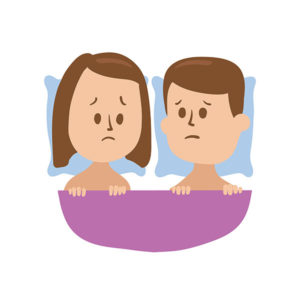Happy late February, dear readers! I’m writing this to you shortly after Valentine’s Day, so maybe you’re basking right now in the glow that comes with having recently had some delicious chocolate, a nice dinner out, and a long, romantic evening with the one you love.
But a lot of you might not love Valentine’s Day because sex causes you pain. And, unfortunately, unlike Valentine’s Day, hardly anyone talks about that.
So maybe you blame yourselves. Maybe you blame your partner. Maybe you stop having sex. Maybe you’re too embarrassed to talk about it, even with a doctor. Maybe you’ve avoided dating because of it. The inability to enjoy one of life’s greatest pleasures could understandably make you feel depressed and hopeless.
But you don’t have to suffer!
First of all, take heart. Sex that hurts, otherwise known as dyspareunia, is common, so you are not alone. It happens to almost three out of four women at some point. It may even affect up to half of postmenopausal women. (Sex can hurt men too, but it’s rarer.)
So what causes it? While you should always see a doctor to get a diagnosis when you are experiencing painful sex, here are just a few possibilities:
Vaginismus happens when your vagina tenses outside of your control. It doesn’t only happen during sex. It can even happen when you’re just putting in a tampon. It may be caused by anything from anxiety to sexual abuse. Pelvic floor physical therapy can help, as can dilator therapy, CBT (cognitive behavior therapy), and sex therapy. (If you come to Revitalize Physical Therapy, we are happy to guide you in how to use dilator therapy to treat this!) Vaginismus can require some patience, but it can ultimately be resolved, as can vulvodynia.
And just what is vulvodynia? Well, it’s chronic pain in your vulva that goes on for a minimum of three months and doesn’t have a definitive cause. (Here is a diagram of the vulva for those who need it!) The Mayo Clinic describes vulvodynia as feeling like “burning,” “stinging,” “rawness,” or even a “sharp or knife-like pain.” Pain can also feel like it is constant or intermittent, be in the whole vulva or just a certain part. And while the medical community doesn’t know what causes it, some theories are previous vaginal infections, inflammation, pelvic floor muscle weakness, or pelvic spasm. Having vulvodynia and dealing with the fear of sex being painful might even lead to vaginismus! This can be a vicious cycle. Pelvic floor physical therapy, CBT and sex therapy can also help with this.
Then there is vaginal atrophy, which can affect middle-aged women: Decreased estrogen results in decreased lubrication, which can result in painful sex. If you haven’t had sex in awhile, that can also lead to atrophy, so again, if you are avoiding sex due to a painful sex condition, you may find yourself with another painful sex condition. (Vaginal atrophy can even be caused by antihistamines!) Treating vaginal atrophy can be as simple as using lubricant (which can help make sex more pleasurable) or you may need vaginal estrogen from your doctor. Dilators may also help.
I know that all this information is overwhelming, but it is worth taking the time to learn more. Proper diagnosis leads to proper treatment, and hopefully, by this time next year, you might be enjoying some sweet new memories of your best Valentine’s Day ever!



